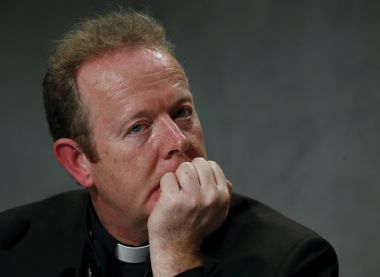Northern Ireland: Catholic bishops tell voters to avoid pro-abortion candidates
Catholic bishops in Northern Ireland have urged voters away from candidates who may support a change in the region's conservative abortion laws.

In a direct intervention on the regional elections next week, the Irish Catholic bishops' conference published a "pastoral reflection" for the faithful. The 6,000 word document told voters to avoid candidates who sought a change in the law on same-sex marriage or abortion.
Northern Ireland is the only part of the UK where 1967 abortion act and the 2013 same-sex marriage act does not apply.
The statement said: "The moral issue here is not whether what is proposed is abortion 'on demand' or some form of so-called 'limited' abortion.
"From a moral point of view, there is no such things as 'limited' abortion. Abortion is always the deliberate and intentional taking of an innocent, vulnerable human life, and a direct breach of the commandment 'Thou shalt not kill'."
In Northern Ireland abortion is only allowed where the mother's life is in direct danger. The disparity between other parts of the UK has led to a number of prominent cases where women have travelled to England to have an abortion.
A number of women in Northern Ireland face prosecution after buying abortion pills online.
The bishops denied their stance was "mere religious doctrine". They said: "The principle of the inviolability of innocent human life is the most fundamental of all moral principles. It is the basis upon which every human right we enjoy as persons is predicated. This is not only a religious doctrine, but a universal human value upon which our very freedom and dignity as a person rests."
The extensive document also asked candidates to stand against any attempt to legalise same-sex marriage in Northern Ireland. The bishops quoted Pope Francis as it reiterated the Church's stance that there are "no grounds for considering homosexual unions to be in any way similar or even remotely analogous to God's plan for marriage and family".
The statement urged candidates to "reflect on the importance of the family based on marriage between one man and one woman, as the foundation and cornerstone of society and therefore deserving of special recognition and protection in policy and law".











